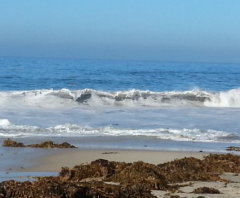Assignment # 2 — Research Essay Analyzing Anon(ymous)
We do research every day: when we hear a snippet of a new song by our favorite artist, we look it up; when we watch a TV show and recognize an actress but can’t tell from where, we google their character to figure out where we know them from; when we need to go somewhere we haven’t gone before, we google maps our way there (yeah, I used it as a verb).
Research — in its many forms — allows us to answer questions (and find new questions!) that itch, questions that ache, questions that we can’t quite get our minds around. As we read Anon(ymous), the play will surely inspire a lot of questions in us. Some of these questions are going to be ripe for research: together, we will generate our own research questions that will guide our investigations. You will use your research to help you write a deep analysis of Anon(ymous) and the exigent issues it evokes. You will need to cite (in MLA format, which we will discuss in class) at least three sources (aside from Anon(ymous)), one of which must be a scholarly article published in an academic journal. Your essay must be at least 750 words long (5 pages double spaced).
Due Dates:
Friday, October 20th — Comment on the google doc version of this assignment. What questions do you have about the assignment? What apprehensions do you have? Clarifications? Excitements?
Monday, October 23rd — Draft your expectations for Assignment 1 and email them to me before class. All you need to do here is to please answer the following questions: what grade you are aiming for; what specific things, according to the grading contract, you are going to do to earn that grade; how much time you are expecting to put in; what kind of effort you expect to put into your peer reviews; what kind of help you expect from me; what experiences have you had with research in the past; what makes you nervous about writing a research paper; what makes you excited about writing a research paper; what questions do you have about writing a research paper?
Friday, October 27th — Pre-draft for Assignment 2 posted to the blog before class. All you need to do here is to please answer the following questions: What kinds of research do you think Naomi Iizuka had to do in order to write Anon(ymous)? What kinds of preparation might actors have to do to perform this play? What three things grab your attention most in the play? Why? What kinds of research might you perform to help you understand those three parts of the play in a deeper, more meaningful way (beyond just saying what it’s about)? How can this kind of research help you understand and critique the rhetorical choices in Anon(ymous)? What point might you want to make with your research paper? How can you use your research to ask a question about Anon(ymous) that can contribute an important, unique insight to the conversations about the play?
Friday, November 3rd — Rough draft for Assignment 2 posted to the blog before class. Try to have as many of your thoughts/analysis expressed in your draft as possible. Include with your draft at least 5 specific questions that you would like your peer reviewer to answer, and cite at least 2 sources (aside from Anon(ymous)). Include your works cited list.
Monday, November 6th — Post your peer review commentary and answers as a comment to two of your classmates’ Rough Draft posts before class.
Friday, November 10th — Post your most recent, edited and revised project to the blog before class. In addition, please include your 600 word reflective artist’s statement regarding what you learned, what you didn’t learn, how you can use what you learned in the future, the kind of research you did and how you think this helped you analyze the play, and how you think you could have pushed your analysis even further. What rhetorical choices did you make in your research paper and how did these choices advance your analysis? How did the process of peer review push your analysis forward? If it didn’t, why not? How can you and your partners conduct your peer reviews differently next time? What fresh rhetorical insights might you bring from this assignment into future assignments?
